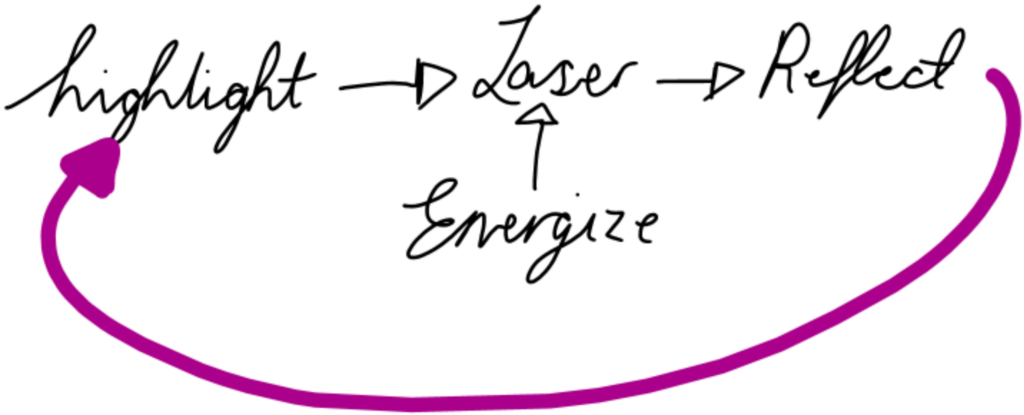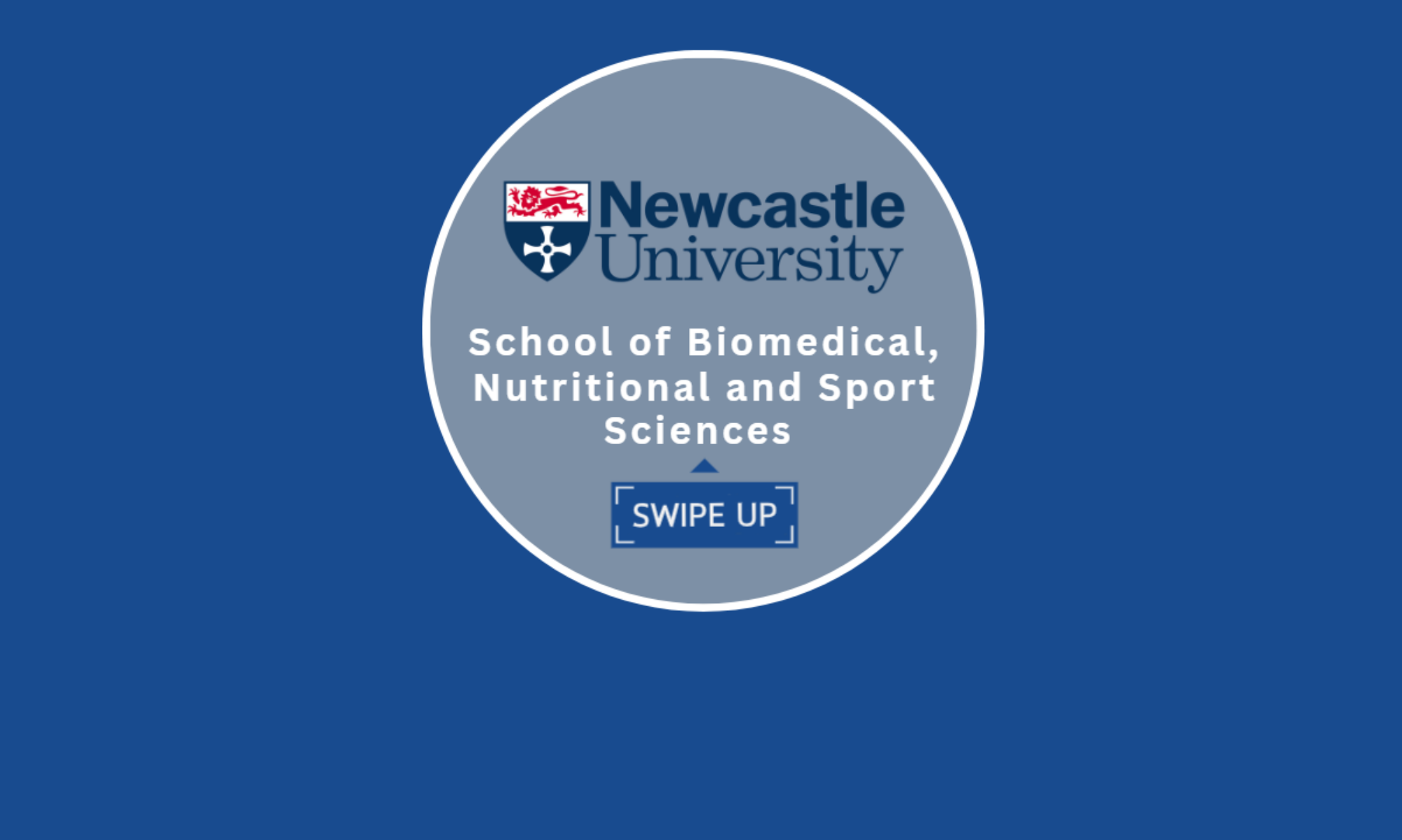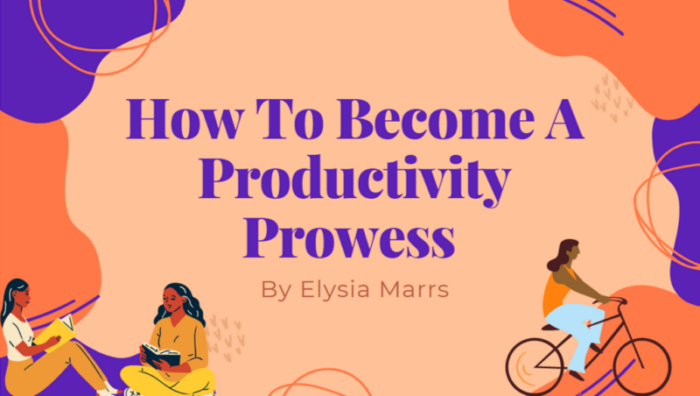As students, we’re all striving for the balance between work time and down time. However, many of us fall into the procrastination cycle where your down time is seemingly fighting head on with your work time. But what if I told you it doesn’t have to be this way? Your hobbies and work schedule can coincide synergistically, resulting in a happier, less stressed version of you. In this blog post I’m going to outline a few tips to help set yourself up for success with a foundation of healthy habits, and to make more time for the things that are important to you.
It is a well-known fact that being consistent with good habits reaps its rewards over time. In his book “Atomic Habits: An Easy and Proven Way to Build Good Habits and Break Bad Ones” 1 , James clear explains how even the smallest of consistent actions have a monumental impact when they accumulate in the long term. But setting these habits in stone is something that is still considered challenging to many – to the point of failure.
How Can You Make Your Habits Stick?
1. Reward your brain
In a sense, we can manipulate our brain’s natural biology to our advantage. Reward systems in the brain have been heavily researched – they underpin the mechanics of addiction and are vital in survival mechanisms such as eating, drinking and reproduction. The dopaminergic reward pathway works by stimulating DA neurons, which release dopamine. In the language of the brain, dopamine is the ultimate reward and gives us a pleasurable feeling.
“Reward” is the final step in Clear’s 4-part checklist to building a habit. (see figure 1) Immediately after you have completed the desired habit, reward yourself to kickstart the association of the habit with the dopamine release pathway. The dopaminergic reward released after a task is completed provides you with the motivation to repeat this action. In other words: the first push to the top of the hill is all you need to get the ball rolling.
This theory of post task gratification underpins Jeff Haden’s book: “Motivation Myth, The: How High Achievers Really Set Themselves Up to Win” 2, which explains how motivation is the result of completing a task, rather than something required to initiate said task.

| What is it? | Have “cues” to that make your habit “obvious.” Perform your new habit immediately after an established habit, helping it stick. Set a time and location. | “pair something you don’t want to do with something you do.” Surround yourself with people with similar goals. | “Reduce friction.” Simplify tasks to help you get started – washing all the dishes becomes wash one dish. | Instant Gratification |
| Example | Put your running shoes by your bed – cue to go running as soon as you wake up. | Listening to you an audiobook (want) while running (Habit). Having the TV on (want) while cleaning (habit). Join a running club (environment). | Have the tools you need for your habit e.g. textbooks, pen paper, easily accessible, rather than at the back of a cupboard. | See your friends Relaxing bath Football training |
For more insight on how to make your desired habits “obvious, attractive, easy and rewarding” , you may want to check out James Clear’s book: “Atomic Habits: An Easy and Proven Way to Build Good Habits and Break Bad Ones.” 1
2. Make Time
Everyone hates procrastination for a reason – you’re chilling, doing something fun – but it isn’t enjoyable because there’s that impending task looming over your head.

Jake Knapp and John Jeratsky’s book “make Time: How to focus on what matters every day” focuses on having more time for what is important to you. For instance, this could mean being able to get your best grades, have a part time job, volunteer, play sports, and still be able to catch up with your favourite Netflix series.3
Applying Jake and John’s techniques will make both your “chill time” and “work time” feel so much more rewarding, deliberate and stress relieving.
The “make time” framework3 consists of four steps:

Highlight: what task are you going to make your no.1 priority to get done today?
Having a highlight prevents the day from flashing past in a blur. By the end of the day you will have made a clear, almost tangible step towards your long term goals. Jake and John recommend picking something that will take 1-2 hours, is either urgent, important, will leave you feeling happy or accomplished, or a combination of these. All other mundane, non urgent tasks can go on a “might do” list, to prioritise your highlight.
Laser: What tactics are you going to use to block out distraction and enter your “deep work” state?
Reflect: What went well today? What could you improve?
Energise: All about keeping your body and mind healthy: movement, sleep, nutrition, social time, and relaxation time.
3. Protect Your Highlight: Say No
Many of us, including myself, struggle to say no. We don’t want to disappoint our friends/co-workers/ peers – not to mention the fomo. At university there are seemingly endless opportunities to have fun, and sometimes it feels like everyone wants a bit of your time. In reality, real friends won’t be hurt if you politely decline every now and again. Accepting every invitation will put your own “highlight” on the backburner. Prioritising your highlight will not only prevent you from spreading yourself too thinly, but will ultimately lead to daily satisfaction with how you are utilising your time, and long term achievement of your goals.
4. Laser: Digital Detox
In a 2016 study on the effect of our phones on our ability to focus on a task, neuroscientists showed that the delivery of push notifications significantly reduces our cognitive function and concentration.4
Turning off your phone and notifications while you work will allow a higher level of cognitive function and a deeper level of concentration. An even more effective barrier to this distraction is to leave your phone at home. Head to your favourite study spot for a few hours and see for yourself how much more work you get done. This is Applying Clear’s theory by using a physical barrier to break a bad habit.

“To learn hard things quickly, you must focus intensely without distraction.”5
Dale Carnegie, Deep work: Rules for Focused Success in a Distracted World
5. Delay Your Morning Phone Check
Our phones are designed to be addictive. Constant and instant stimulation from your phone triggers the release of dopamine that your brain LOVES. Dopamine is a key player in addiction – once you get your morning hit, it is a lot harder to say no to the distraction of your phone throughout the day. Make the most of your brain’s overnight withdrawal. To make this bad habit difficult, turn your phone off and put it somewhere it’s a hassle to get out.
6. Make Your Own Deadlines

Deadlines can give you the kick up the backside you need to commit to completing a task – you can use this as a tool by creating your own. Essay due in one month? Set yourself a deadline to complete a rough plan for the structure/ themes of your essay by Monday.
Repeating this technique will help you maintain your focus all the way up to the deadline, rather than having a mad rush the week before.
7. Be Bored
To many, boredom is to be avoided at all costs. Waiting in a queue, on public transport or during your commute to uni – many of us instinctively reach for our phones e.g. in the form of social media, games or music. However, a comprehensive 2019 study on boredom6 showed that being bored can trigger behaviours that increase our ability to think outside the box, challenge the accepted norm, and find creative solutions to problems. Turning your phone off during study breaks, commutes or while you’re eating may unlock a higher level of cognitive thinking, and supply the boost you need to finish those essays.
8. Brain Blurt

You’ve sat down at your desk to study. But wait – I need to wash my team shirt before my hockey match on Sunday! *puts shirt in the wash* Okay. Now I am ready to study. Brain: Nuh Uhhh – your friend mentioned going out this weekend – or was it Thursday? You must check right now. *checks phone* … and the cycle repeats. We have a lot going on, and our brains can’t physically store all of this information. The perfect solution is to simply move these thoughts from your brain to paper.

Write down absolutely everything you can think of – anything on your mind. This will leave your brain distraction free to focus on the task at hand without it wondering off to other things. If anything comes to mind during a study session you can add it to the list and resume your work.
These are just a few tricks, but they won’t work for everyone. Try a few out and see what works best for you.
Want to read the whole book? Books here:
- Atomic Habits by James Clear
- The motivation myth by Jeff Haden
- Make Time by Jake Knapp and John Zeratsky
- Deep Work by Cal Newport
If you enjoyed reading this, and want to hear more of our best student tips, check out our blog series: Thriving Not Surviving Here.
Written and Edited By: Elysia Marrs
References:
- Atomic Habits: An Easy and Proven Way to Build Good Habits and Break Bad Ones, James Clear, (16 Oct. 2018)
- Motivation Myth, The: How High Achievers Really Set Themselves Up to Win, Jeff Haden, Portfolio (7 Jan. 2019)
- Jake Knapp, John Zeratsky, Make Time: How to focus on what matters every day, Bantam Press; 3rd edition (27 Sept. 2018)
- Kim SK, Kim SY, Kang HB. An Analysis of the Effects of Smartphone Push Notifications on Task Performance with regard to Smartphone Overuse Using ERP. Comput Intell Neurosci. 2016;2016:5718580. doi: 10.1155/2016/5718580. Epub 2016 Jun 5. PMID: 27366147; PMCID: PMC4912993.)
- Deep Work: Rules for Focused Success in a Distracted World, Cal Newport, Piatkus; 1st edition (5 Jan. 2016)
- GUIHYUN PARK, BENG-CHONG LIM, HUI SI OH. Why Being Bored Might Not Be a Bad Thing After All. Academy of Management Discoveries [Internet]. 2019 Mar [cited 2022 Feb 6];5(1):78–92. Available from: https://search-ebscohost-com.libproxy.ncl.ac.uk/login.aspx?direct=true&db=bth&AN=136627659&site=ehost-live)

